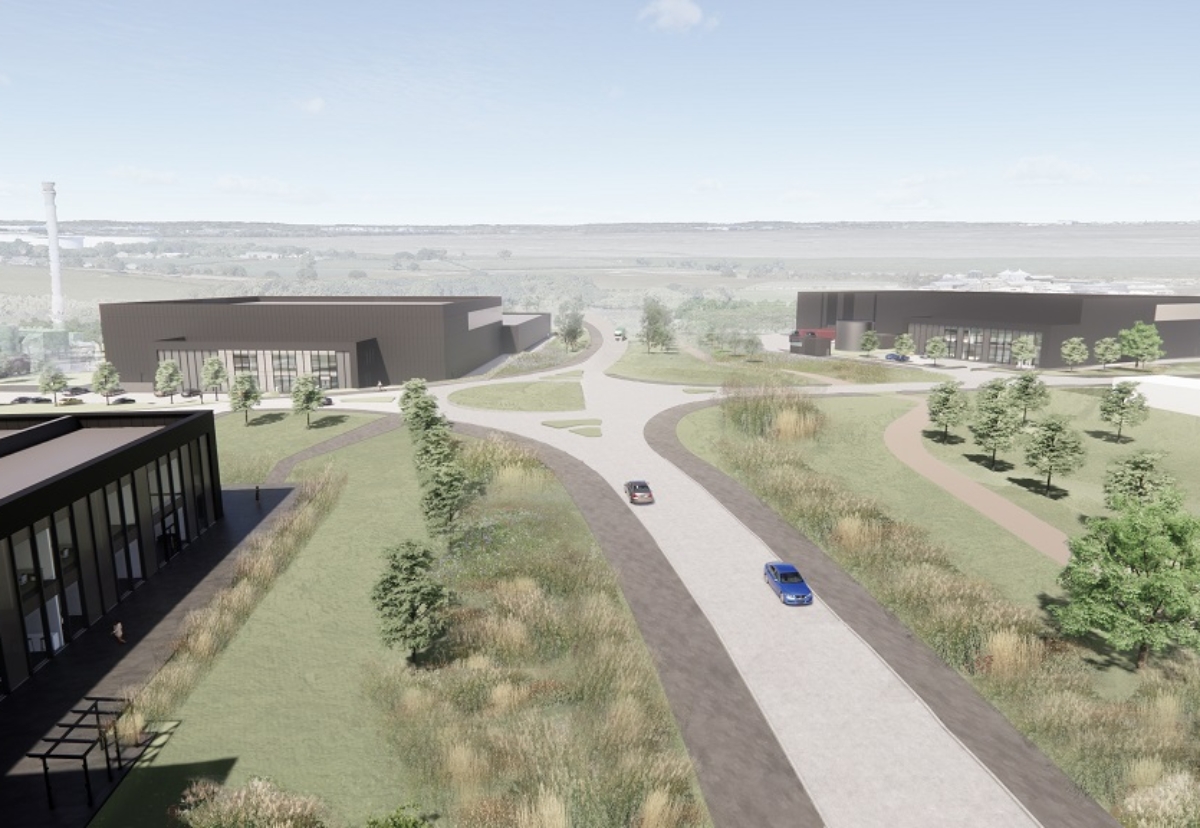The firm already has planning the UK’s first waste plastic to hydrogen facility expected to cost £20m.
It is now raising ambitions to create a much larger £165m recycling hub at Protos, the company’s strategic energy and resource hub near Ellesmere Port in Cheshire.
The firm is now seeking planning approval for several extra facilities which would provide capacity for up to 367,500 tonnes of mixed recyclables and plastic and save 170,000 tonnes of CO2 every year.
Protos Park plan
A Materials Recycling Facility (MRF): to separate out dry mixed recyclable materials (such as glass, paper, cans and card) into different waste streams and send them for recycling.
Plastics Recycling Facility One (PRF1): plastic from the MRF and mixed plastics arriving pre-sorted to the site will be separated into different plastic types. The separated plastic will either go to PRF2 or the PET recycling plant already consented at Protos.
Plastics Recycling Facility Two (PRF2): pre-sorted plastic from PRF1 will be washed and processed into flaked plastic which can be used to make new plastic products, such as food packaging or drinks bottles.
Polymer Laminate Recycling Facility: plastic (such as crisp packets and baby food pouches) will be heated, the plastic will break down into an oil for reuse in manufacturing new products with the aluminium recovered for recycling.
Hydrogen refuelling station: taking hydrogen from the consented plastic to hydrogen facility to supply up to 1000kg of hydrogen per day to vehicles, sufficient to fuel approximately 20 HGVs from outside Protos and a similar number of internal HGV movements that will be servicing operations within Protos.
Richard Barker, Development Director at Peel NRE, part of Peel L&P, said: “The Plastic Park is an innovative way of managing our plastic waste.
“It will be a single location where mixed materials can be sorted and processed, maximising the amount that can be recycled.
“We’ll be able to take almost all types of plastic, providing a simple solution for local councils. We envision multiple Plastic Parks throughout the country which will help manage waste plastic on our own shores. This will allow us to create a circular economy, starting in the North West.”

























.gif)
























 (300 x 250 px).jpg)



